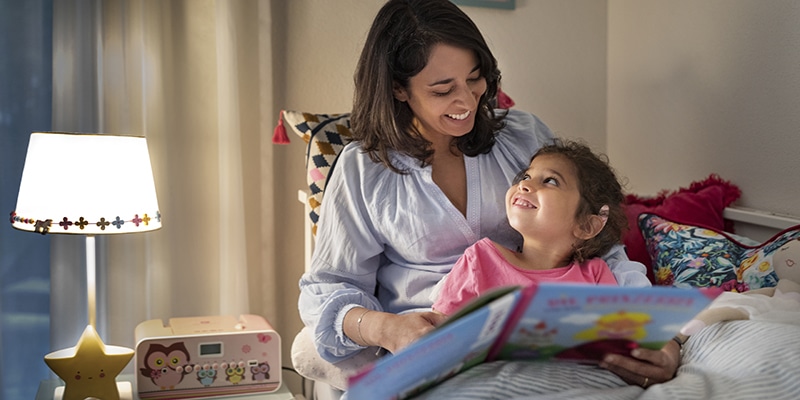MED-EL
Published Feb 24, 2021

It’s never too early to start reading with your child! Reading books with your child from infancy will support their listening, speech, language and literacy skills to develop. Talking about the characters, storyline and pictures in books is an important step for developing your child’s later literacy skills.
Reading aloud is one of the most important things that parents can do to support their child to develop reading and writing skills later on. Here are some tips for reading aloud with your child.
To become good readers, children need:
There are various approaches to teach reading, however alongside learning letters, sounds or whole words, children must understand and be able to use a variety of words in different contexts to ensure they understand the text they read.
Looking for new reading activities you can easily do at home? The Murat Reader Series is a great resource for that – free handout included!
Singing and rhyming together can also help develop your child’s listening and language skills. Rehab expert Sera Jang explains how to make singing rhymes part of your daily activities.
MED-EL
Was this article helpful?
Thanks for your feedback.
Sign up for newsletter below for more.
Thanks for your feedback.
Please leave your message below.
Thanks for your message. We will reply as soon as possible.
Send us a message
Field is required
John Doe
Field is required
name@mail.com
Field is required
What do you think?
MED-EL
Want to make sure you get all the latest articles from the MED-EL Blog? Subscribe now!
Registration was successful
We’re the world’s leading hearing implant company, on a mission to help people with hearing loss experience the joy of sound.
Find your local MED-EL team
© MED-EL Medical Electronics. All rights reserved. The content on this website is for general informational purposes only and should not be taken as medical advice. Contact your doctor or hearing specialist to learn what type of hearing solution suits your specific needs. Not all products, features, or indications are approved in all countries.


